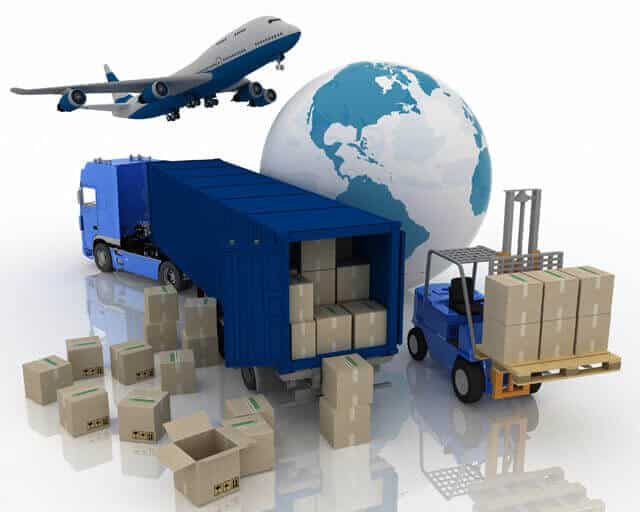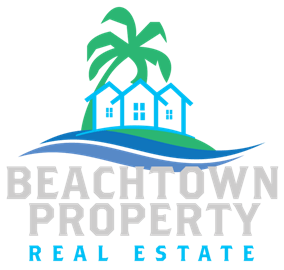Importing Your Possessions into the Dominican Republic with Residency
Importing Your Possessions into the Dominican Republic with Residency
If you become a resident, you can import household goods and your personal cars and motorbikes with reduced duty and tax fees, which could save you a lot of money.
However, it is advisable to use a professional import company either in your home country or here in the Dominican Republic.
We used this company, Translogic based in Santo Domingo and the whole process was done with no problems, with all our possessions delivered to our house without any issues as promised!

Law 168 of 1967 authorizes new legal residents and Dominicans who have lived abroad for at least two years to bring in their household goods tax-free. You will pay hardly any taxes on household goods and personal effects if you go through the process of getting your residency prior to arriving in the country. The process is not as complicated as that of importing a vehicle and is recommended.
Importing Your Possessions into the Dominican Republic with Residency: Note that not all items are exempt, and some items will be taxed if they are in excess of what the bureau considers normal for a household.
The law specifically established duty-free treatment for personal effects and household goods. Equipment used for work purposes, such as dental, medical equipment, and computers, are also exempt. The equipment needs to be used, but most of the time, new household goods that do not come in their original boxes are allowed through.
Importing your car
If you are a new legal resident (that is you have secured your Residence Permit), Law 14-93, Article 13 establishes that you are entitled to scaled discounts on the taxes to be paid. Deductions that will be made to the values established in the computer for your brand and year of vehicle are:
One year with the registration in your name: 20% deduction
Two years with the registration in your name: 30%
Three years with the registration in your name: 40%
Four years with the registration in your name: 50%
Five years with the registration in your name: 60%.
Be warned that makes and models that are deemed special may not qualify its important to seek professional advice!
Law 168 of 1967 authorizes new legal residents and Dominicans who have lived abroad for at least two years to bring in their household goods tax free. You will pay hardly any taxes on household goods and personal effects (or nothing at all) if you go through the process of getting your residency prior to arriving condition. The process is not as complicated as that of importing a vehicle, and is recommended. Note that not all items are exempt, and some items will be taxed if they are in excess of what the bureau considers normal for a household.
Importing Your Possessions into the Dominican Republic with Residency
The law specifically establishes that duty free treatment for personal effects and household goods. Equipment used for work purposes, such as dental or medical equipment and computers are also exempt. The equipment needs to be used, but most of the time, new household goods that do not come in their original boxes, are allowed through. The foreigners need to declare that they will be living permanently in the country. The tax exemption also applies to Dominicans who have lived abroad for at least two consecutive years and return to establish their permanent residence in the country. Note that this privilege is only granted once in a lifetime.
Foreigners need to declare that they will be living permanently in the country. The tax exemption also applies to Dominicans who have lived abroad for at least two consecutive years and return to establish their permanent residence in the country. Note that this privilege is only granted once in a lifetime.
A private individual may import goods if they are for personal use. If the quantity and nature of these goods indicate that they may not be for personal use, customs will (in most cases) require that a legally established company be the consignee. You MUST be at least a legal resident to have a shipment cleared on your behalf; customs will require your ID number (cédula). For businesses, the Tax Contributor Number (RNC) is required.
To import goods into the DR, in general, ALL shipments will require the following: a commercial Invoice, bill of lading or Air Way Bill, a C1 (optional), and a consular invoice.
A consular Invoice is an original commercial invoice from the Dominican consulate closest to the point of shipping. The consulate issues a consular invoice, and this document is needed to clear the shipment in the DR. The fee that the consulate charges varies depending on the location.
In the absence of a Dominican Consulate in a radius of 100 miles of the shipping port, the shipper must require the local chamber of commerce to issue a letter stating that there isn’t a Dominican consulate within the required distance.
Although the law states that a consular invoice is needed for any shipment worth US$100 or more, in practice, it is only needed for shipments worth US$1000 or more. If the consignee cannot produce the Consular invoice at the time of clearance, customs will fine the consignee. At the moment, the fine is about RD$6500.
Some shipments may require special permits and documentation. For example, to import cosmetics, medicine, and food, you will need permits from the Health Department (Secretaría de Salud Pública); this means that there is an additional procedure outside the Customs clearance that has to be followed PRIOR to the arrival of the shipment.
Importing Your Possessions into the Dominican Republic with Residency: You must know that not everything can be imported into the DR. Consult a customs broker if you are not sure about the goods you are importing before the actual shipment takes place.
Be aware that ALL documents MUST be original and printed on original stationery (not photocopies, no faxes). Customs frowns upon the use of handwritten documents; the more official-looking the documents are, the fewer problems you may have. If you have lost the documents or they haven’t arrived on time, you will only be able to clear your shipment if you present customs with a bond for the value of the merchandise, though customs may still decline to let you take your goods.
Importing Your Possessions into the Dominican Republic with Residency: The typical procedure to clear a shipment at customs includes the following steps. You, or your broker on your behalf, must fill out a form (Form 3480) declaring the details of the shipment (shipper, consignee, commodity, total FOB, freight, insurance, etc).
This document, along with the documents listed above, will be presented at the customs office of the port/airport of arrival. A customs officer (Verificador) will be assigned to inspect the shipment and confirm the veracity of the information declared on Form 3480. All shipments are inspected.

Once the shipment is inspected the form goes to the Assessment Department (Valores). This department will check the prices that you declared (your prices may or may not be accepted as true and will be readjusted by customs), and will calculate the amount of duties and taxes to be paid. After paying these, you can withdraw your goods from customs.
Note: You must make your presentation no later than 10 days counting from (and including) the arrival date. Failure to do so will result in a heavy fine. Also, be aware that although this is a basic review of the procedure, in reality is DOES NOT work so simply. Consult your customs broker for details.
Importing Your Possessions into the Dominican Republic with Residency
It is difficult to estimate payment within customs. There isn’t a “flat” tax in the DR, so duties can range from 0% to 30%, it depends on the commodity that you are importing. Duties and taxes are calculated on a CIF basis. Only insurance bought from Dominican companies are accepted at customs for the purpose of calculating taxes. If you cannot produce your insurance policy at the time of clearance, customs will assume 2% of the FOB value as cost of insurance. Taxes and duties are paid in pesos and the current exchange rate used at customs is 32.00 RD$/1 US$.
Besides duties, certain taxes and fees are also paid at the time of clearance: Comisión cambiara: 4.75% (C1), ITBIS: 12%, Selectivo al consumo: 20 – 40% (luxury goods and alcohol), Warehousing (Portuaria): calculated on the basis of weight and days at port.
If you are importing full container loads (FCL) you will have to leave a deposit of RD$6500 per container to guarantee that they will be returned clean and in good condition within 14 days of arrival at the port. For each day after that US$15 per container will be deducted from the deposit. This is not paid to the government, but rather to an association of shipping lines.
There are exceptions to these rules. Certain businesses and commodities are treated in a different manner. Manufacturing Free Zone companies, for example, are exempt from paying duties and taxes (some fees apply). There are many other exceptions to the rules, for more details consult a customs broker.
There are three major airports in the DR. The largest airport in the DR is Aeropuerto Internacional de las Americas (AILA) (SDQ), near Santo Domingo followed by La Unión (POP) near Puerto Plata. Aeropuerto Internacional del Cibao (STI) near Santiago has recently started operations.
The most important port in the DR is Rio Haina. Rio Haina Oriental is operated by the government; Rio Haina Occidental is operated by Maersk/Sealand. Puerto Plata is the second largest. Other ports are Boca Chica (west of Santo Domingo), San Pedro de Macorís, and Manzanillo. There are a few other ports that don’t have regularly-scheduled lines going in or out.
If you have any further questions, ask your customs broker. You should not attempt to go through customs alone, so get a trustworthy customs broker with experience in the field.
Importing Your Possessions into the Dominican Republic with Residency
